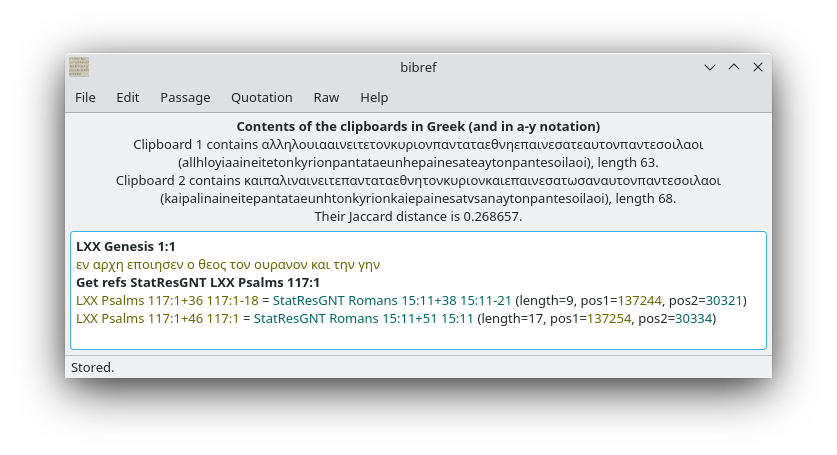bibref

bibref
bibref is a tool that helps discovering internal references in the Bible. It aims at finding citations of the Septuagint in the Greek New Testament in a mechanical way.
Background
The Bible, a book that has been translated into many languages, is maybe the most important book has ever existed. Believers have evidence that it is God’s word, written by various people being inspired by God himself.
The Bible has many internal references. Many of them connect the two parts of the Bible: the Old Testament and the New Testament. The books of the Old Testament are usually written in Hebrew, while the books of the New Testament are Greek. A natural question can arise: How can Hebrew texts be cited in the Greek text?
There are several research projects on this, and today it seems to be clear that many authors of the New Testament cited a Greek translation of the Hebrew text, namely the Septuagint, that was widely popular in the first centuries, and still popular in some Christian churches. Many Bible translations, however, mostly use only the Hebrew text as a basis of the Old Testament, because the importance of the Septuagint is not yet widely identified.
This project
This software project attempts to support finding citations of the Septuagint in the New Testament automatically. The work is based on The SWORD Project.
The bibref package offers several tools that help in comparing the verses of the Septuagint with the verses of the Greek New Testament. The tools consider the texts of full books of the Bible as one unit instead of considering just separated verses. The texts are provided by the SWORD project from the modules LXX and SBLGNT. In the newest versions the module StatResGNT is also supported.
Documentation
See the bibref wiki for further information.
Download
The tool can be freely downloaded at the Releases page.